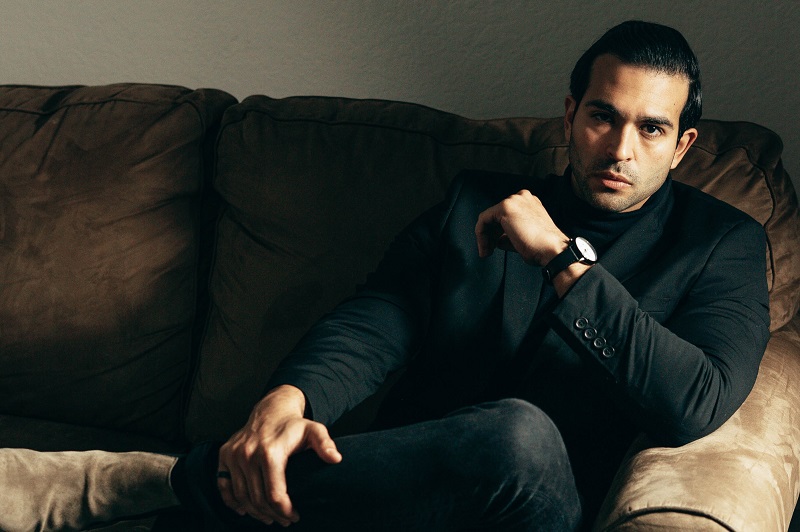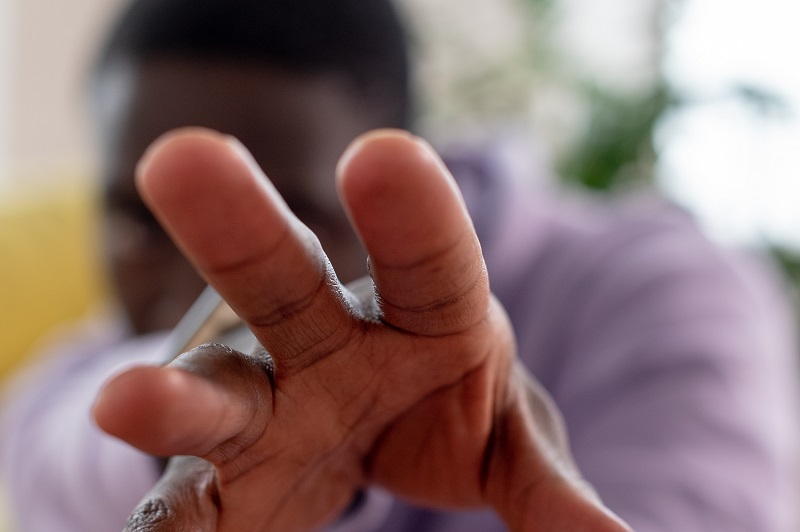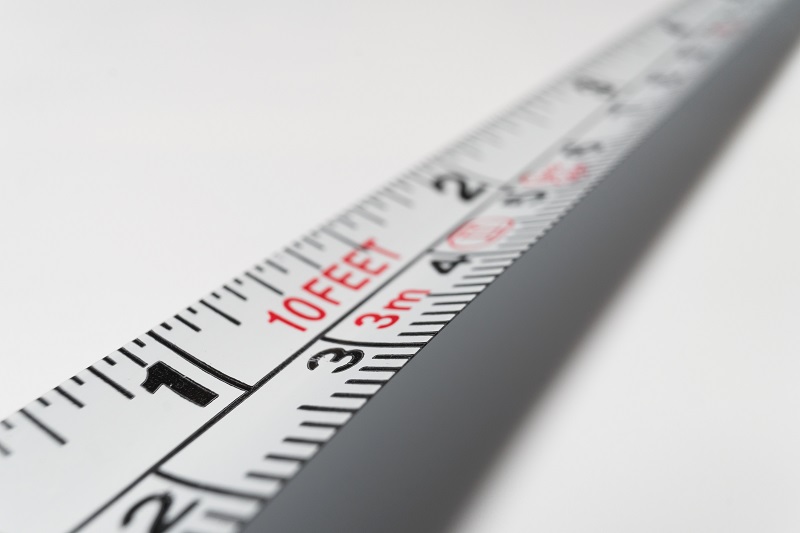Dating can be a daunting task, especially for men who may struggle with confidence and self-assurance.
In today’s fast-paced and increasingly digital world, the pressure to appear confident and successful in dating has never been higher.
However, building confidence in dating is not an overnight process – it requires time, effort, and a willingness to face your fears and improve yourself.
That’s why in this blog, we’ll be exploring a range of practical tips and strategies that men can use to boost their confidence in dating.
From understanding your self-worth to developing social skills and seeking support, we’ll cover a range of essential topics to help you build the confidence you need to succeed in the dating world.
So, whether you’re just starting out or looking to take your dating game to the next level, read on to discover the ultimate guide to building dating confidence as a man.
1. Understand your self-worth
Now let’s dive into our first strategy for building confidence in dating, which is the foundation on which confidence is built – self-worth.
Self-worth refers to the value that you place on yourself as a person, and it plays a crucial role in how you see yourself and how you interact with others.
For men, self-worth can be a particularly challenging issue to address, as societal expectations often place a great deal of emphasis on external factors such as physical appearance, wealth, and status.
However, true self-worth goes beyond these surface-level attributes and is rooted in a deep understanding of your own values, strengths, and potential.

So, why is self-worth so important when it comes to building confidence in dating?
Why is self-worth so important in building confidence?
Put simply, when you have a strong sense of self-worth, you are less likely to be swayed by external factors such as rejection or negative feedback.
Instead, you are able to approach dating from a place of inner strength and confidence, knowing that you have inherent value as a person regardless of whether or not someone else recognizes it.
In addition, having a strong sense of self-worth can help you avoid falling into the trap of seeking validation from others, which can be a major source of anxiety and insecurity in dating.
By valuing yourself for who you are rather than what others think of you, you are able to approach dating from a place of self-assuredness and authenticity.
So, if you’re looking to build confidence in dating as a man, the first step is to cultivate a deep sense of self-worth.
This means taking the time to reflect on your values, strengths, and accomplishments, and recognizing that these things make you a valuable and worthy person.
From there, you’ll be in a much better position to approach dating with confidence and authenticity, setting the stage for success in all of your romantic endeavours.
How to build self-worth?
To build self-worth, it’s important to recognize and appreciate your personal strengths, qualities, and achievements.
These are the things that make you unique and valuable as an individual, and they’re worth taking the time to appreciate and celebrate.
List your accomplishments
One effective way to recognize and appreciate your personal strengths is to make a list of your accomplishments, big and small.
This could include anything from getting a promotion at work to learning a new skill or hobby.
By taking the time to acknowledge your achievements, you’ll be able to see the value that you bring to the table as a person.

Focus on qualities that make you unique
Another important aspect of recognizing personal strengths is to focus on the qualities that make you unique.
This could include your sense of humor, your compassion for others, your creativity, or your ability to problem-solve.
By recognizing these qualities, you’ll be able to appreciate the unique value that you bring to any relationship or interaction.
Value your inner qualities and characteristics
It’s also important to remember that self-worth is not just about external accomplishments and qualities.
It’s also about recognizing and valuing your own inner qualities and characteristics.
Qualities such as your sense of integrity, your ability to listen and empathize, or your willingness to take risks and learn from mistakes.
Separate your value as a person from dating success
Another important aspect of building self-worth and confidence in dating is to learn to separate your value as a person from your dating success.
This can be a challenging task, as the dating world often places a great deal of emphasis on external factors.
These include; physical appearance, wealth, and status. However, it’s important to remember that these factors do not define your worth as a person.
Here are some ways in which you can separate your value as a person from dating success:
Focus on things you can control
This could include aspects of your life such as your career, hobbies, or personal relationships.
By focusing on these areas and striving to improve them, you’ll be able to build a strong sense of self-worth that is independent of your dating success.
Recognize that dating is a two-way street
Recognize that dating is a two-way street, and that rejection or lack of success in dating does not reflect your inherent value as a person.
Just because someone doesn’t reciprocate your interest or you don’t get a second date doesn’t mean that you’re not a valuable and worthwhile individual.
By recognizing that your worth as a person is not defined by external factors such as dating success, you’ll be able to approach dating from a place of inner strength and authenticity.
Once you have an understanding of your self-worth it’s time to face your fears.
2. Face your fears head-on

It’s common to have fears and insecurities related to dating, such as rejection, failure, or vulnerability.
However, these fears can hold you back from experiencing meaningful connections and fulfilling relationships.
The first step in facing your fears is to identify them. Take some time to reflect on the insecurities you have about dating.
Here are some common fears that may be holding you back:
Rejection
The fear of rejection is a common insecurity in dating. Nobody wants to feel rejected or unlovable.
However, it’s important to remember that rejection is a normal part of dating.
Not everyone will be interested in you, and that’s okay. Don’t take it personally, and try not to let it affect your self-esteem.
YOU MIGHT ALSO LIKE: Navigating rejection: A Guide for Men in the Dating World
Failure
Many men fear failure in dating. They worry about not living up to societal expectations or not being good enough for their potential partner.
However, it’s important to remember that dating isn’t a competition or a performance. It’s about getting to know someone and seeing if you’re compatible.
Don’t put too much pressure on yourself to “succeed” in dating.
Being vulnerable
Vulnerability can be scary, especially when it comes to opening up to someone new. Many men fear that showing vulnerability will make them appear weak or unattractive.
However, vulnerability is a strength, not a weakness. It allows you to connect with others on a deeper level and build meaningful relationships.
Once you’ve identified your fears, it’s time to face them. Don’t let them hold you back from pursuing the relationships you want.
Instead, use them as motivation to become a better version of yourself.
Techniques to Identify and overcome your fears
Identifying and confronting fears and insecurities can be a challenging process.
However, there are several techniques that can help you overcome them and build your confidence in dating.
Here are some effective techniques that you can use:
Cognitive-behavioral therapy (CBT)
CBT is a type of therapy that helps you identify and change negative thought patterns and behaviors.

It’s a highly effective treatment for anxiety and depression, which are common issues that can affect confidence in dating.
Through CBT, you can learn to challenge negative thoughts and beliefs and develop more positive and realistic thinking patterns.
Exposure therapy
Exposure therapy involves gradually exposing yourself to the situations or experiences that make you anxious or uncomfortable.
This can help you build resilience and reduce anxiety over time.
For example, if you fear rejection, exposure therapy may involve gradually exposing yourself to situations where rejection is possible, such as approaching someone you’re interested in.
Through exposure therapy, you can learn to tolerate discomfort and overcome your fears.
Mindfulness meditation
Mindfulness meditation involves focusing your attention on the present moment, without judgment or distraction.
This can help you develop a greater awareness of your thoughts and emotions, and learn to observe them without being overwhelmed by them.
Through mindfulness meditation, you can learn to reduce anxiety and build resilience in the face of stressful situations.
Positive self-talk
Positive self-talk involves replacing negative or self-critical thoughts with positive and affirming ones.
For example, if you catch yourself thinking “I’m not good enough,” try replacing it with “I am worthy and deserving of love and connection.”
Through positive self-talk, you can learn to reframe your thoughts and build a more positive self-image.
Seek support
Seeking support and encouragement from friends, family, or professionals can be a powerful way to boost your confidence and overcome your fears and insecurities.

Here are some benefits of seeking support:
Validation and encouragement
When you share your struggles and fears with others, they can provide you with validation and encouragement.
This can help you feel less alone and more supported in your journey toward building confidence.
Accountability
Seeking support can help you stay accountable to your goals. When you have someone to share your progress with, it can motivate you to keep going and stay on track.
Perspective
Sometimes, it can be difficult to see the bigger picture when you’re in the midst of a challenging situation.
Seeking support can provide you with an outside perspective and help you gain clarity on your situation.
Professional guidance
If your fears and insecurities are particularly challenging, seeking professional guidance can be a helpful option.
Therapists and coaches can provide you with specialized tools and techniques to help you overcome your challenges and build confidence in dating.
Remember, seeking support is not a sign of weakness, but a sign of strength. It takes courage to reach out for help and acknowledge that you need it.
Along with understanding your self-worth and facing your fears, your body and mind play a major role in how you feel, which is why you have to take care of them.
3. Practice self-care
Self-care refers to the intentional actions you take to care for your physical, emotional, and mental health.
It includes activities such as exercise, meditation, spending time with loved ones, and engaging in hobbies. Practicing self-care is essential for maintaining physical and emotional well-being.
Here are some reasons why self-care matters:
Physical health
Self-care activities such as exercise, healthy eating, and getting enough rest can help improve your physical health.
Regular exercise can improve cardiovascular health and strengthen muscles and bones, while healthy eating can provide the nutrients your body needs to function properly.

Emotional health
Self-care activities can also improve your emotional health.
Engaging in activities you enjoy and spending time with loved ones can improve your mood and reduce stress.
Activities such as meditation and journaling can help you process your emotions and improve your overall sense of well-being.
Preventing burnout
Practicing self-care can help prevent burnout, which can occur when you become overwhelmed and exhausted from the demands of daily life.
By taking time to care for yourself, you can recharge and replenish your energy, which can help you better manage stress and prevent burnout.
Improved relationships
Taking care of yourself can also improve your relationships with others. When you prioritize your own well-being, you are better able to show up for others and be present in your relationships.
Remember, self-care is not selfish, but rather an essential part of maintaining physical and emotional well-being.
By making self-care a priority, you can improve your overall health and well-being.
Tips for practicing self-care
Practicing self-care is essential for improving physical and emotional well-being. Here are some tips for incorporating self-care into your daily routine:
Exercise regularly
Regular exercise can improve physical health and reduce stress. Aim for at least 30 minutes of moderate exercise per day, such as walking, jogging, or yoga.
Find an exercise routine that works for you and stick with it.
Eat a healthy diet
A healthy diet can provide the nutrients your body needs to function properly.

Aim to eat a variety of fruits, vegetables, whole grains, and lean proteins. Avoid processed and sugary foods, which can lead to energy crashes and mood swings.
Get enough restful sleep
Getting enough sleep is essential for physical and emotional well-being. Aim for 7-9 hours of restful sleep per night.
Create a sleep-friendly environment by keeping your bedroom cool, dark, and quiet.
Engage in hobbies and activities you enjoy
Engaging in activities you enjoy can improve emotional well-being and reduce stress.
Find a hobby or activity that brings you joy, such as reading, painting, or gardening. Make time for these activities regularly.
Connect with loved ones
Spending time with loved ones can improve emotional well-being and reduce feelings of loneliness.
Make time to connect with friends and family regularly, whether it’s through phone calls, video chats, or in-person meetings.
Remember, self-care is a personal journey and may look different for everyone. Find the self-care practices that work for you and make them a priority in your daily routine.
Once you have mastered the art of self-love and care, you can focus on building connections with others.
Here are some reasons why social skills matter:
Communication
Effective communication is essential in building strong relationships. It allows you to express your thoughts and feelings clearly, and understand others’ perspectives.

Good communication skills can help you avoid misunderstandings and conflicts, and build trust with others.
Listening
Listening is just as important as communicating. It shows that you value others’ perspectives and are interested in what they have to say.
Good listening skills can help you build deeper connections with others and understand their needs and desires.
Empathy
Empathy is the ability to understand and share others’ emotions. It allows you to connect with others on a deeper level and build stronger relationships.
Developing empathy can help you be more understanding and compassionate toward others.
Humor
Humor can be a powerful tool in building connections and easing tension.
Practice using humor appropriately in social situations, such as by telling jokes or finding common ground through lighthearted conversation.
However, be mindful of others’ reactions and avoid humor that is hurtful or offensive.
Body language
Your body language can convey as much information as your words.
Being aware of your body language and using it effectively can help you communicate your intentions and emotions more effectively, and create a more positive impression on others.
Using social skills to initiate and maintain successful dating relationships
Remember, social skills are an ongoing practice, so be patient and persistent in your efforts.
With time and practice, you can develop strong social skills and create more fulfilling connections with others.
By using social skills in the following ways, you can build stronger connections and increase your chances of success in dating.
Showing interest
One way to show interest in a potential partner is to use good communication skills.
Ask open-ended questions that encourage conversation, and show genuine interest in their responses.
Practice active listening to better understand their perspective, and respond thoughtfully to their comments.
Use positive body language, such as maintaining eye contact and leaning in, to convey your interest.
Building intimacy
Building intimacy in a relationship requires vulnerability and trust.
Use empathy to understand your partner’s emotions and feelings, and practice active listening to better understand their needs and desires.
Practice effective communication by expressing your own thoughts and feelings in a clear and honest way.

Use positive body language, such as cuddling or holding hands, to build physical intimacy and affection.
Being supportive
Being supportive in a relationship involves using empathy and effective communication to show your partner that you care.
Listen actively to their concerns and offer support and encouragement.
Use humor to lighten the mood and build a positive connection.
Use positive body language, such as offering a hug or a reassuring touch, to convey your support.
Respecting boundaries
Respecting boundaries is an important part of any relationship.
Use empathy to understand your partner’s comfort level, and practice effective communication by discussing and establishing clear boundaries.
Use positive body language, such as maintaining a comfortable distance and respecting personal space, to convey your respect for their boundaries.
Initiating relationships
Initiating a relationship can be daunting, but using social skills can help you make a positive impression.
Use good communication skills by expressing your interest clearly and respectfully.
Practice active listening to better understand the other person’s perspective and respond thoughtfully.
Use positive body language, such as maintaining eye contact and smiling, to convey confidence and interest.
After building up your confidence and learning social skills, it’s time to set goals and measure your progress.
5. Set goals
Setting achievable and meaningful goals related to dating is essential for achieving dating success. Here are some benefits of setting goals:
Increased motivation
Setting clear and achievable goals can increase motivation and provide a sense of purpose. Goals can help you focus your efforts and provide a roadmap for success.
Improved focus
Setting goals can help you prioritize and focus your efforts on what matters most. By setting clear goals, you can avoid distractions and stay on track towards achieving your desired outcomes.

Greater self-awareness
Setting goals can also increase self-awareness and help you better understand your own desires and priorities in dating. This can lead to more meaningful and fulfilling connections with others.
Measurable progress
Setting goals that are measurable and achievable can provide a sense of progress and accomplishment. Celebrating small wins along the way can boost confidence and motivation.
Increased confidence
Setting achievable goals and working towards them can increase confidence in your dating abilities.
As you achieve small wins along the way, you may feel more confident in your ability to achieve your larger dating goals.
Accountability
Setting goals can also provide accountability in your dating life.
By sharing your goals with friends or a therapist, you can create a sense of accountability that can help you stay motivated and focused on achieving your goals.
Tips for setting achievable dating goals
Setting achievable and meaningful goals related to dating is essential for achieving dating success.
Here are some tips for setting effective goals:
Be specific
When setting goals related to dating, be specific about what you want to achieve.
For example, instead of setting a goal to “meet more women,” set a goal to initiate conversations with a certain number of women per week.
Make goals measurable

Setting measurable goals can help you track your progress and celebrate your successes along the way.
For example, if your goal is to go on more dates, set a specific number of dates per month as your goal.
Set achievable goals
Setting goals that are realistic and achievable can help you stay motivated and avoid frustration. Setting unattainable goals can lead to disappointment and a sense of failure.
Align goals with personal values
Setting goals that align with your personal values and desires can increase motivation and provide a sense of purpose.
For example, if your values include adventure and trying new things, set a goal to try a new dating activity each month.
Create a plan
Once you’ve set your goals, create a plan for achieving them.
This can include breaking down larger goals into smaller, more manageable steps, or scheduling time each week to work towards your goals.
Challenge yourself
While it’s important to set achievable goals, it’s also important to challenge yourself. Setting goals that push you out of your comfort zone can help you grow and develop as a person.
Focus on actions, not outcomes
When setting goals related to dating, focus on actions you can take rather than outcomes you can’t control.
For example, instead of setting a goal to find a long-term partner by the end of the year, set a goal to go on a certain number of dates per month.
Evaluate and adjust
Regularly evaluating your progress and adjusting your goals as needed can help you stay on track and avoid getting stuck in a rut. If a particular goal isn’t working for you, adjust it or set a new one.
Stay positive
Finally, stay positive and keep a growth mindset. Recognize that setbacks and failures are a natural part of the dating process, and use them as opportunities to learn and grow.
Remember, setting achievable and meaningful goals is key to achieving dating success.
Next is learning from your experiences and adjusting accordingly.
6. Learn from your experience

Reflecting on and learning from both successes and failures in dating is essential for achieving dating success.
Here are some reasons why:
Increased self-awareness
Reflecting on past experiences can increase self-awareness and help you better understand your own desires and priorities in dating.
This can lead to more meaningful and fulfilling connections with others.
Improved decision-making
Learning from past experiences can also improve decision-making in future dating situations.
By understanding what has worked well and what hasn’t, you can make more informed choices about potential partners and activities.
Enhanced communication skills
Learning from past experiences can also improve communication skills in relationships.
By reflecting on past communication breakdowns and successes, you can better understand how to effectively communicate with potential partners.
Greater confidence
Reflecting on past successes and failures can also increase confidence in your dating abilities.
By understanding what has worked well in the past, you can build on those successes and feel more confident in future dating situations.
Remember, reflecting on both successes and failures in dating is essential for personal growth and achieving dating success.
Tips for using past experiences to improve future outcomes
Reflecting on past experiences is essential for learning and growth, but it’s important to also use those experiences to improve future dating outcomes.
Here are some tips for using past experiences to improve future outcomes:
Identify patterns
When reflecting on past experiences, look for patterns of behavior or choices that have led to either positive or negative outcomes.

By identifying these patterns, you can make more informed choices in future dating situations.
Focus on growth
When reflecting on past failures, focus on what you can learn and how you can grow from those experiences.
Rather than dwelling on mistakes or shortcomings, use those experiences as opportunities for personal growth and development.
Celebrate successes
When reflecting on past successes, take time to celebrate those achievements and recognize the positive qualities or choices that led to those outcomes.
This can increase confidence and motivation in future dating situations.
Be open to feedback
Seeking feedback from trusted friends, family, or professionals can also help you learn from past experiences and improve future outcomes.
Be open to constructive criticism and use that feedback to make more informed choices in future dating situations.
Take action
Finally, use the insights gained from past experiences to take action and make positive changes in your dating life.
Whether it’s trying new activities or setting new goals, taking intentional action can lead to more positive outcomes in the future.
Remember, using past experiences to improve future outcomes is an ongoing process.
By regularly reflecting on past experiences and using those insights to inform future choices, you can increase your chances of finding meaningful connections and achieving dating success.
Conclusion
Dating can be a challenging and intimidating process, but by mastering the art of confidence, you can increase your chances of finding meaningful connections and achieving dating success.
In this guide, we’ve explored a variety of strategies for building confidence and improving dating skills, including identifying and confronting fears and insecurities, seeking support, developing social skills, practicing self-care, setting goals, and learning from experience.
By using these strategies and tips, you can cultivate confidence, resilience, and a growth mindset in your dating life.
Remember, building confidence is an ongoing process, and setbacks and challenges are a natural part of the dating journey.
However, with persistence, self-reflection, and a positive attitude, you can navigate the dating world with greater ease and achieve the fulfilling connections you desire.
We hope this guide has provided you with valuable insights and tools for mastering the art of confidence in dating.
Remember, building confidence and achieving dating success takes time and effort, but with the right mindset and strategies, you can overcome obstacles and find meaningful connections.
Good luck on your dating journey!
Image Source:
Pexels.com






4. Develop social skills
Social skills are the tools and techniques we use to interact with others in social situations. They include communication, listening, empathy, and body language, among others.
Developing strong social skills is essential in building confidence and connecting with others in dating.
By developing strong social skills, we can build confidence in social situations and connect with others more easily. It takes practice and effort, but the rewards are worth it.